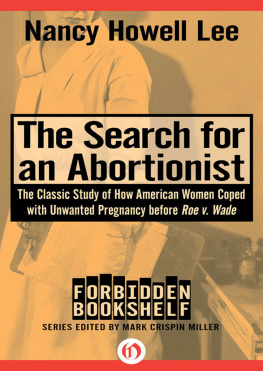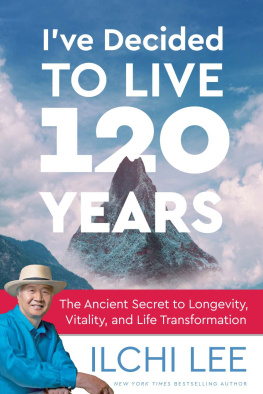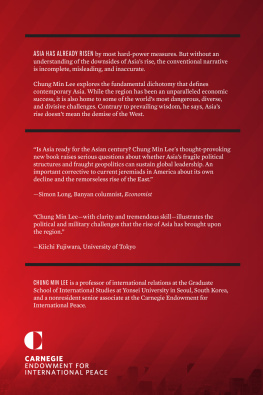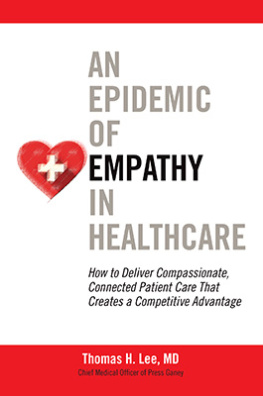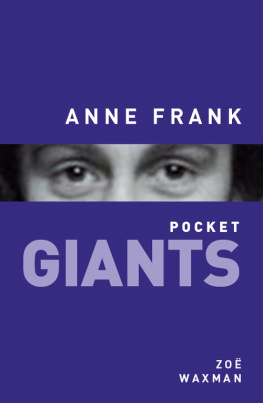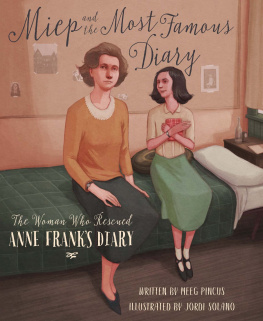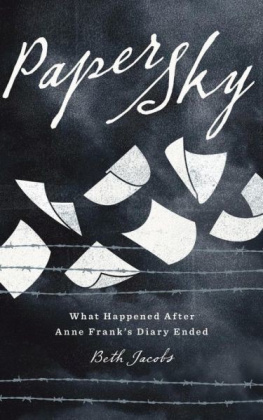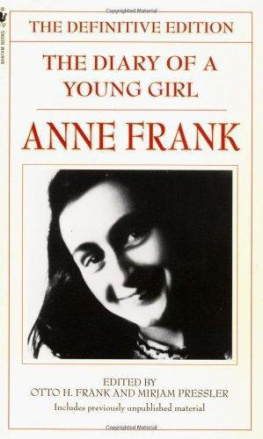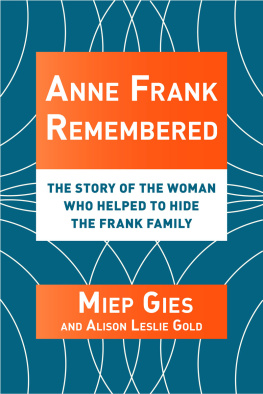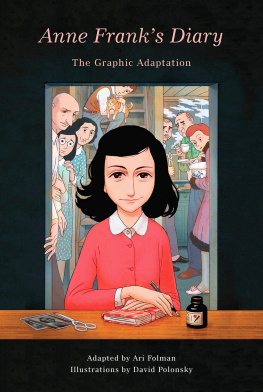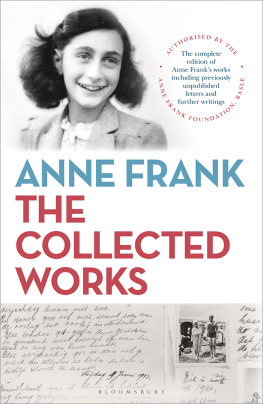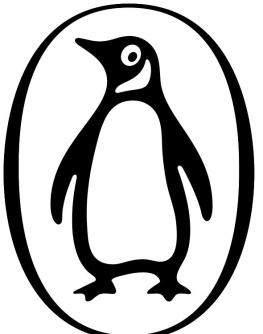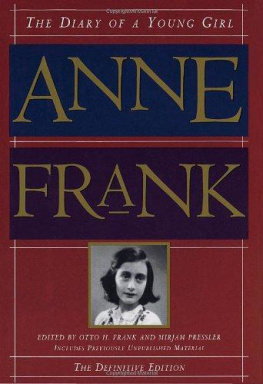Lee - Roses from the earth : the biography of Anne Frank
Here you can read online Lee - Roses from the earth : the biography of Anne Frank full text of the book (entire story) in english for free. Download pdf and epub, get meaning, cover and reviews about this ebook. City: London, year: 2000, publisher: Penguin, genre: Non-fiction. Description of the work, (preface) as well as reviews are available. Best literature library LitArk.com created for fans of good reading and offers a wide selection of genres:
Romance novel
Science fiction
Adventure
Detective
Science
History
Home and family
Prose
Art
Politics
Computer
Non-fiction
Religion
Business
Children
Humor
Choose a favorite category and find really read worthwhile books. Enjoy immersion in the world of imagination, feel the emotions of the characters or learn something new for yourself, make an fascinating discovery.
- Book:Roses from the earth : the biography of Anne Frank
- Author:
- Publisher:Penguin
- Genre:
- Year:2000
- City:London
- Rating:5 / 5
- Favourites:Add to favourites
- Your mark:
- 100
- 1
- 2
- 3
- 4
- 5
Roses from the earth : the biography of Anne Frank: summary, description and annotation
We offer to read an annotation, description, summary or preface (depends on what the author of the book "Roses from the earth : the biography of Anne Frank" wrote himself). If you haven't found the necessary information about the book — write in the comments, we will try to find it.
Anne Franks diary is the most widely-read book after the Bible, yet never before has a biography of her been published. Carol Anne Lee has been allowed access to previously unpublished documents and gives a definitive account of Anne Franks short life before, during and after the diary.
Roses from the earth : the biography of Anne Frank — read online for free the complete book (whole text) full work
Below is the text of the book, divided by pages. System saving the place of the last page read, allows you to conveniently read the book "Roses from the earth : the biography of Anne Frank" online for free, without having to search again every time where you left off. Put a bookmark, and you can go to the page where you finished reading at any time.
Font size:
Interval:
Bookmark:
it seems to me that neither I nor for that matter anyone else will be interested in the unbosomings of a thirteen-year-old schoolgirl
Anne Frank, Diary, 20 June 1942
In the spring of 1998, whilst immersed in the research for this book, I was told that a number of hitherto unknown pages of Annes diary had come to light. These papers were in the possession of a MrCornelius Suijk, who claims he was given them by Otto Frank, a long-time friend of his. Otto had apparently handed him the material in 1980, when two German neo-Nazis, Ernst Romer and Edgar Gaiss, were on trial for denouncing the diary as a forgery. Both men were found guilty, and when their case came to appeal, a team of historians was sent by the German Federal Government to assess the authenticity of the diary notes. Otto allowed them to examine his daughters works, but not before he had removed from the archive five pages which he wanted to remain a private matter. These he then handed to Cornelius Suijk, who claims that Ottos purpose in entrusting him with the papers was to be able truthfully to tell any interested parties that he held no further diary pages in his possession.
After Ottos death in 1980, Suijk retained the five pages and made no mention of them to RIOD (the Netherlands State Institute for War Documentation) during the preparation of the Critical Edition of the diary, even though, under the terms of his will, Otto had bequeathed all of Annes writings to the institute. Suijks decision to remain silent about the unpublished material was motivated, he has said, out of a desire to protect Fritzi, Ottos widow, from being confronted with it. The editors of the Critical Edition did indeed consult Fritzi Frank in the course of their work. She asked them to excise a number of lines from Annes original entry for 8 February 1944; the passage begins with another
In the summer of 1998, news of the missing pages broke in the worlds press. Public interest was immense, and newspapers gave the story extensive coverage. However, months before, after having had the opportunity to read these missing pages, I had come to the conclusion that the existence of the new diary fragments was of great importance because they were written by Anne Frank, but that the actual material they contained was in no sense revelatory. There is nothing in the pages (written on loose sheets in February 1944) which Anne has not said, in one form or another, elsewhere in her diary. The main theme and the one which caused the most excitement concerns the marriage of Otto and Edith, which Anne believed fell far short of the ideal image her parents tried to project. She thought that the relationship was romantically unequal, that her mother was being broken by the lack of passion and love shown to her by Otto. In Annes eyes, Ottos emotions towards his wife were those of respect and love, but not what Anne termed full love, by which she meant romantic love. She hinted (as she had before) at a relationship in her fathers past, before his marriage to Edith, perhaps implying that this was the great love of Ottos life. Anne wrote that she admired her mother for coping so well with a marriage which existed in name only, and wondered whether she could help her in some way, before concluding that the gulf between herself and her mother was too wide to allow such a move on her part.
As with other aspects of the diary, one should bear in mind the circumstances under which Annes dissection of her parents marriage was written. Annes notions of love had not then been tempered by actual experience, and she was always at her most critical when describing herself and the people with whom she lived in almost unendurable, constant proximity. Annes judgement may or may not have been fair, but the marriage must have been under strain because of the situation in which the Franks found themselves: the close confinement, stress, fear, and the lack of privacy (Margot shared her parents bedroom) would have done little to help any couple. In any case, Otto was thirty-six years old when he married. It is both unrealistic and nave to imagine he had never looked at another woman before meeting Edith. What, then, can be deemed revelatory or shocking about Annes adolescent speculations?
Much has been made of the idea that Anne was more sympathetic towards her mother in the missing pages than anywhere else in the diary; I do not feel this is the case. In both the Definitive and Critical editions as they now stand, there is an easily traceable, if gradual, maturation in Annes attitude towards her mother. At one point she decides that it is better to write down her less charitable thoughts about her mother than to speak of them openly; she also resolves not to point out the problems in their relationship, confiding to Kitty: I want to save her the unhappiness it would cause her. Had the diary continued beyond August 1944, then in all probability Annes occasional anger toward her mother, which was clearly lessening as she grew older, would have petered out, as most teenagers rebellion does.
In the remainder of the missing pages, Anne wrote that she would be careful to preserve her papers from the eyes of her family, feeling that their secrets were hers alone. This has given rise to feverish conjecture that Anne would not have wanted her diary published. Again, one should remember that Anne was mercurial, and her opinions and ideas changed from one day to the next. Near the beginning of her diary, she states: I dont intend to show this cardboard-covered notebook, bearing the proud name of diary, to anyoneto publication, and she was still working on these diary revisions when the Gestapo arrived.
So why did Otto Frank conceal these pages for so long? I dont think Ottos aim was to preserve his own image in the eyes of the diarys readers, nor do I think that Fritzi Frank would have been shocked by their content she was no child bride when she married Otto, after all. The real answer, I believe, lies in these lines from Ottos memoir: I was very saddened sometimes to read how harshly Anne wrote about her mother. In her rage over some kind of conflict she let her feelings out without restraint. It hurt to read how often Anne had judged wrongly her mothers views. But I was relieved to read in later entries that Anne realized that it was sometimes her fault that she frequently didnt get on with her mother. She even regretted what she had written. I am convinced that it was these feelings of distress over the relations which had existed between his wife and youngest daughter that led Otto to omit these entries from the published diary. He wanted to preserve the image of his daughter not only for her readers, but also for himself. He knew perfectly well that Anne was no saint, but, as her father, he followed his instincts in excluding those passages where Annes anger was at its most vehement, particularly when that anger was directed towards the wife he had lost.
As things stand at the time of writing, in December 1998, Cornelius Suijk still has the pages in his possession, and it is not possible to quote from them. Suijk has said that he will hand over the pages to RIOD, who had already planned to update the Critical Edition, but he has refused to say when. The pages will eventually be included in this, and in all new editions of the diary. David Barnouw explains: Ten years have passed since we had those discussions [about the omissions], and we feel its time. We also wont enclose a footnote. It will be for the readers to make up their own minds.
I have drawn on a wide range of literary sources in my attempt to understand the past and the central figures of this book. Grateful acknowledgement is made to those authors and publishers who have granted permission to quote copyright material. While every effort has been made to trace all the copyright holders, I apologize for any oversights. Anyone believing they are entitled to exercise rights over these omissions are requested to contact the author.
Font size:
Interval:
Bookmark:
Similar books «Roses from the earth : the biography of Anne Frank»
Look at similar books to Roses from the earth : the biography of Anne Frank. We have selected literature similar in name and meaning in the hope of providing readers with more options to find new, interesting, not yet read works.
Discussion, reviews of the book Roses from the earth : the biography of Anne Frank and just readers' own opinions. Leave your comments, write what you think about the work, its meaning or the main characters. Specify what exactly you liked and what you didn't like, and why you think so.




